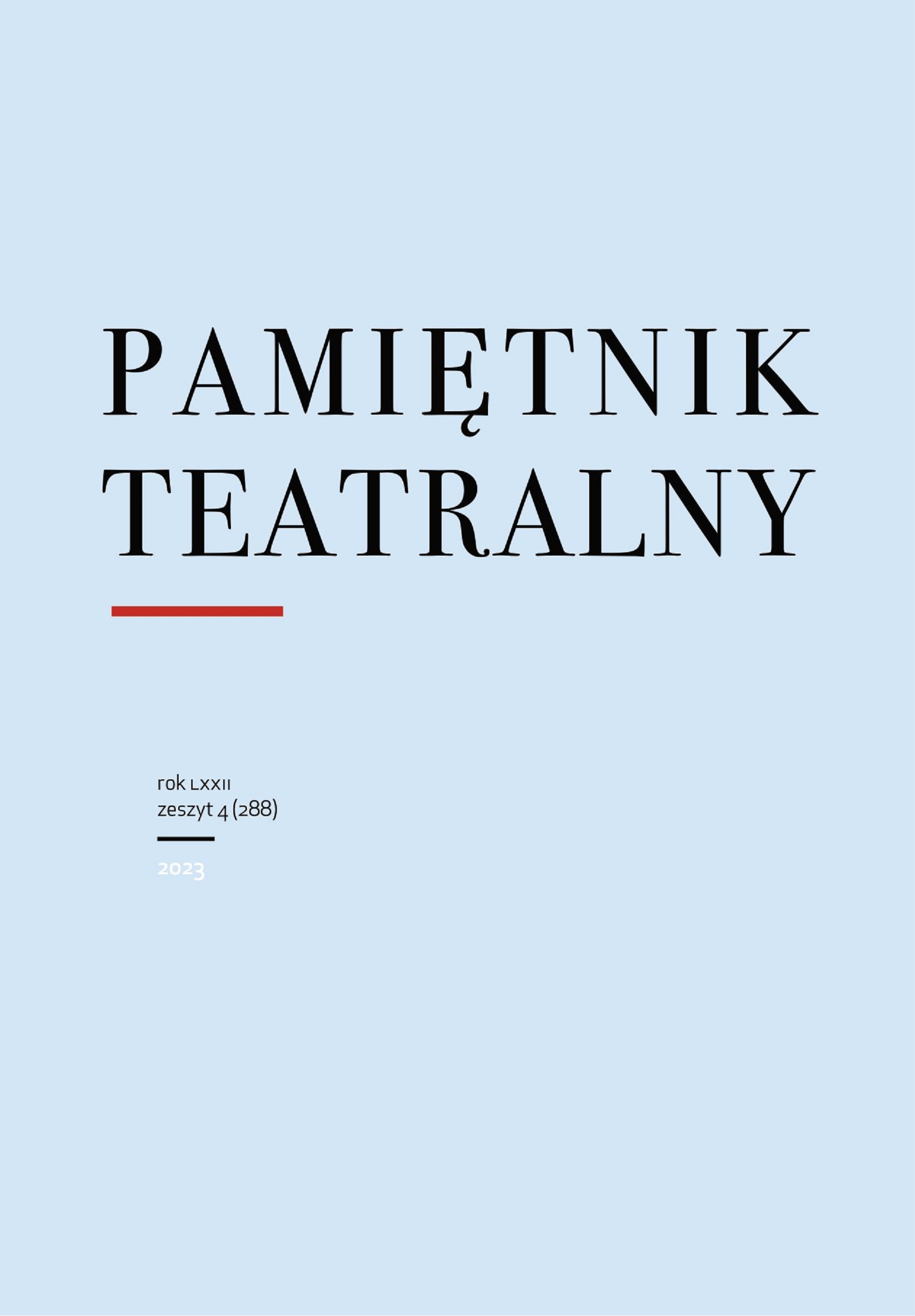Odpowiedzialnie
usytuowana krytyka
afirmatywna
#MeToo w badaniach teatralnych
Responsibly Situated Affirmative Criticism: #MeToo in Theater Research
Author(s): Monika KwaśniewskaSubject(s): Theatre, Dance, Performing Arts, Sociology of the arts, business, education, Sociology of Art
Published by: Instytut Sztuki Polskiej Akademii Nauk
Keywords: #MeToo; criticism; affirmative humanities; new materialism; theater;
Summary/Abstract: This article seeks to develop within the theater studies discourse a research stance and method that would resonate with the transformation that has begun in theater in connection with the #MeToo movement and the discussion about violence in theater schools, creative processes, and theaters. The author’s point of departure is the observation that recent productions thematizing sexual violence in theater have been gradually turning from grievances against the abuse of power towards constructive, forward-leaning proposals for change. This process is founded on the awareness that theater makers are situated within the present systems of power and on the willingness to consider various implications of this situatedness. The proposed project of responsibly situated affirmative criticism, understood as a research-and- writing stance, is based on Donna Haraway’s concepts of situated knowledges, Ewa Domańska’s affirmative humanities, posthumanist ethics (as envisaged by Karen Barad and Monika Rogowska-Stangret), and Harry Lehmann’s affirmative criticism. The article offers an analysis of the discussion about comings-out concerning the “Gardzienice” Center for Theater Practices, as a case study aimed at a more precise delineation of the possibilities for changing the discourse on the instruments and ethics of theater research.
Journal: Pamiętnik Teatralny
- Issue Year: 72/2023
- Issue No: 3
- Page Range: 169-196
- Page Count: 28
- Language: Polish

